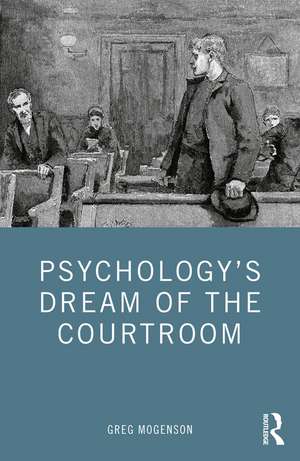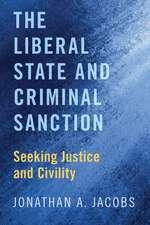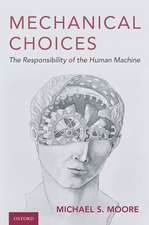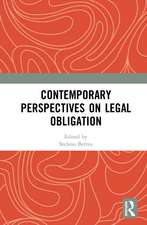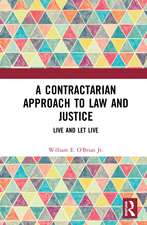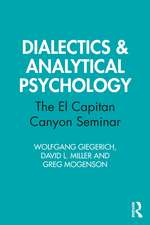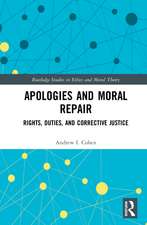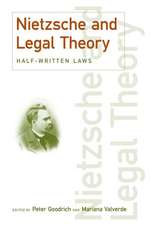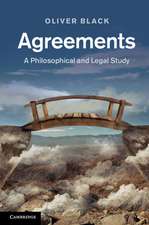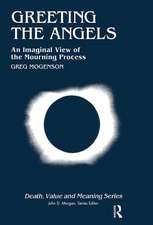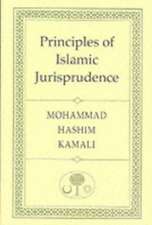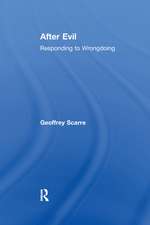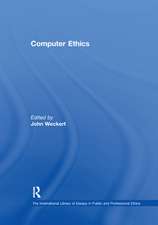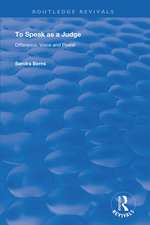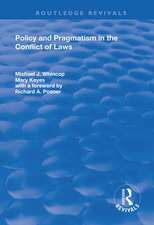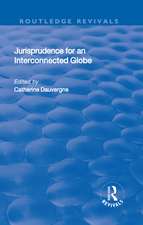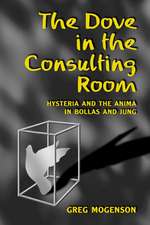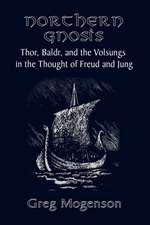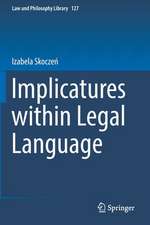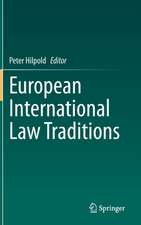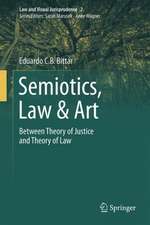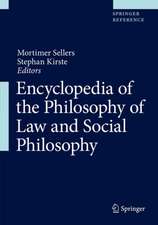Psychology’s Dream of the Courtroom
Autor Greg Mogensonen Limba Engleză Paperback – 4 noi 2019
| Toate formatele și edițiile | Preț | Express |
|---|---|---|
| Paperback (1) | 238.41 lei 6-8 săpt. | |
| Taylor & Francis – 4 noi 2019 | 238.41 lei 6-8 săpt. | |
| Hardback (1) | 813.02 lei 6-8 săpt. | |
| Taylor & Francis – 4 noi 2019 | 813.02 lei 6-8 săpt. |
Preț: 238.41 lei
Preț vechi: 287.39 lei
-17% Nou
Puncte Express: 358
Preț estimativ în valută:
45.62€ • 49.71$ • 38.44£
45.62€ • 49.71$ • 38.44£
Carte tipărită la comandă
Livrare economică 23 aprilie-07 mai
Preluare comenzi: 021 569.72.76
Specificații
ISBN-13: 9780367439330
ISBN-10: 0367439336
Pagini: 228
Dimensiuni: 152 x 229 x 14 mm
Greutate: 0.32 kg
Ediția:1
Editura: Taylor & Francis
Colecția Routledge
Locul publicării:Oxford, United Kingdom
ISBN-10: 0367439336
Pagini: 228
Dimensiuni: 152 x 229 x 14 mm
Greutate: 0.32 kg
Ediția:1
Editura: Taylor & Francis
Colecția Routledge
Locul publicării:Oxford, United Kingdom
Public țintă
Postgraduate and ProfessionalCuprins
Introduction; Chapter 1: Law & Order meets Freud & Jung: The Trials of Analysis; Chapter 2: Before the Bar of the Notion; Chaper 3: Speculative Judgement; Chapter 4: From Onslaught to the Witness Box; Repercussions of the Truth: Psychology as Counsel for the Defence; Chapter 5: Criminality and Psychology; Chapter 6: Psychology's Dream of the Courtroom: In the Light of the Logic of Crime; Chapter 7: Crime and Truth; Chapter 8: Once More the Shine on Binder's Head; In Lieu of an Afterword; Index
Notă biografică
Greg Mogenson is a registered psychotherapist and Jungian psychoanalyst practicing in London, Ontario, Canada.
Recenzii
‘Like a good crime lawyer, Mogenson picks up on a clue from C. G. Jung and follows its lead to the prosecution of his case. Jung had compared psychotherapy to ‘an endless inner trial’. Further to this, Mogenson notes that since the beginning of psychoanalysis therapists have often been called upon by lawyers to give evidence concerning the mental status of accused persons. But the invitation of Jung’s clue is to reverse this process and look for contributions that the law has made to the work of analysts and patients. The book cites Freud’s and Jung’s extensive use of the legal metaphor. It also tells us about the invoking of the courtroom analogy by patients and therapists. Psychotherapy is presented as a bringing of ego to justice, that is, to the truth of soul. All of this makes for fascinating reading – like a crime novel! In several senses of the phrase: psychology is on trial. – David L. Miller, Watson-Ledden Professor Emeritus, Syracuse University
‘What is the nature and truth of psychology? Addressing this question, Mogenson seeks to restore to psychology its nature as the logos of the soul. Through the mediating notions of the "dream of the courtroom" and criminality – to which, both literally and metaphorically, Freud and Jung referred – he reflects psychology back into itself, into its essence. Carrying forward the results of this reflection, he then prosecutes the insipid "pop" psychologists that confuse emotionalism for soul, as well as occasions when Freud and Jung failed to live up to their own profound insights. With subtlety of mind, he proves himself well up to thinking through to the dialectical truth of psychology and the soul’s uroboric self-relation and self-reflection.’ – Michael Whan, Jungian psychoanalyst and author
‘In this original, challenging, and masterful work, Mogenson reaches into the depths of his imaginal life. Following Jung and Giegerich – but perhaps more importantly, an inner figure stimulated by the prosecutor Jack McCoy, from the TV series Law & Order – he puts psychology on trial for perpetrating a logos-less conception of man that does not do justice to truth. Challenged in this way to take its own use of the language of the law seriously, psychology is brought back to itself to restore justice, human dignity, and the integrity of the soul. Mogenson is the real McCoy.’ – Stanton Marlan, Jungian psychoanalyst and author
‘It is truly astounding to learn from the wealth of examples that Mogenson unearthed how frequently and poignantly the psychological mind has been informed by the courtroom metaphor. And it is fascinating to see how his psychological intelligence manages to overcome the innocence of the usual clear-cut opposition of "criminal" and "judge" and to exhaust the speculative potential of each of the many aspects of this rich metaphor. Above all, we see how his in-depth comprehension of psychology’s dreaming of "the law" makes psychology come home to itself. Mogenson’s book is not only "about" psychology. From the beginning to the end it is itself psychology in action and thus can serve as a kind of practical training course for both intelligent beginners and experienced psychologists.’ – Wolfgang Giegerich, Jungian psychoanalyst and author
‘A masterly indictment of psychology’s having given up on itself as a discipline of truth and mutated into the personalistic therapy that is generally practiced today. Mogenson’s witnesses against this trend include Plato, Hegel, Goethe, Nietzsche, Kafka, Heidegger, Freud, Jung, Giegerich, Girard, and Žižek. The book brilliantly prosecutes its case by correlating the speculative logic of psychology and the law. It is essential reading for practitioners of those disciplines as well as for thinking readers from every walk of life.’ – Ann Casement, Licensed Psychoanalyst and Fellow of the Royal Anthropological Institute
‘What is the nature and truth of psychology? Addressing this question, Mogenson seeks to restore to psychology its nature as the logos of the soul. Through the mediating notions of the "dream of the courtroom" and criminality – to which, both literally and metaphorically, Freud and Jung referred – he reflects psychology back into itself, into its essence. Carrying forward the results of this reflection, he then prosecutes the insipid "pop" psychologists that confuse emotionalism for soul, as well as occasions when Freud and Jung failed to live up to their own profound insights. With subtlety of mind, he proves himself well up to thinking through to the dialectical truth of psychology and the soul’s uroboric self-relation and self-reflection.’ – Michael Whan, Jungian psychoanalyst and author
‘In this original, challenging, and masterful work, Mogenson reaches into the depths of his imaginal life. Following Jung and Giegerich – but perhaps more importantly, an inner figure stimulated by the prosecutor Jack McCoy, from the TV series Law & Order – he puts psychology on trial for perpetrating a logos-less conception of man that does not do justice to truth. Challenged in this way to take its own use of the language of the law seriously, psychology is brought back to itself to restore justice, human dignity, and the integrity of the soul. Mogenson is the real McCoy.’ – Stanton Marlan, Jungian psychoanalyst and author
‘It is truly astounding to learn from the wealth of examples that Mogenson unearthed how frequently and poignantly the psychological mind has been informed by the courtroom metaphor. And it is fascinating to see how his psychological intelligence manages to overcome the innocence of the usual clear-cut opposition of "criminal" and "judge" and to exhaust the speculative potential of each of the many aspects of this rich metaphor. Above all, we see how his in-depth comprehension of psychology’s dreaming of "the law" makes psychology come home to itself. Mogenson’s book is not only "about" psychology. From the beginning to the end it is itself psychology in action and thus can serve as a kind of practical training course for both intelligent beginners and experienced psychologists.’ – Wolfgang Giegerich, Jungian psychoanalyst and author
‘A masterly indictment of psychology’s having given up on itself as a discipline of truth and mutated into the personalistic therapy that is generally practiced today. Mogenson’s witnesses against this trend include Plato, Hegel, Goethe, Nietzsche, Kafka, Heidegger, Freud, Jung, Giegerich, Girard, and Žižek. The book brilliantly prosecutes its case by correlating the speculative logic of psychology and the law. It is essential reading for practitioners of those disciplines as well as for thinking readers from every walk of life.’ – Ann Casement, Licensed Psychoanalyst and Fellow of the Royal Anthropological Institute
Descriere
In this ground-breaking book, the use of legal metaphors and the courtroom analogy by Freud and Jung are examined in a manner that shows analytical psychology and psychoanalysis in fresh perspective as disciplines of truth in the spirit of a court proceeding.
